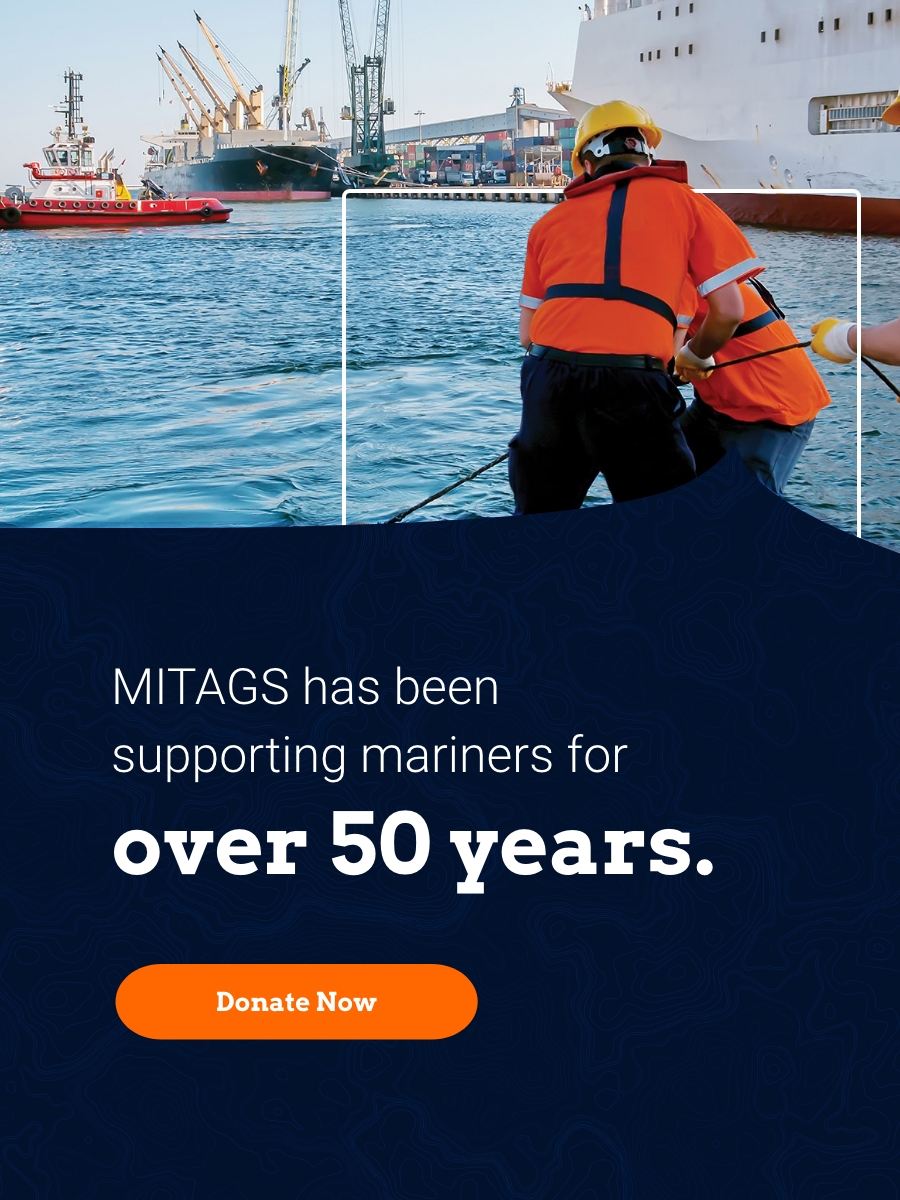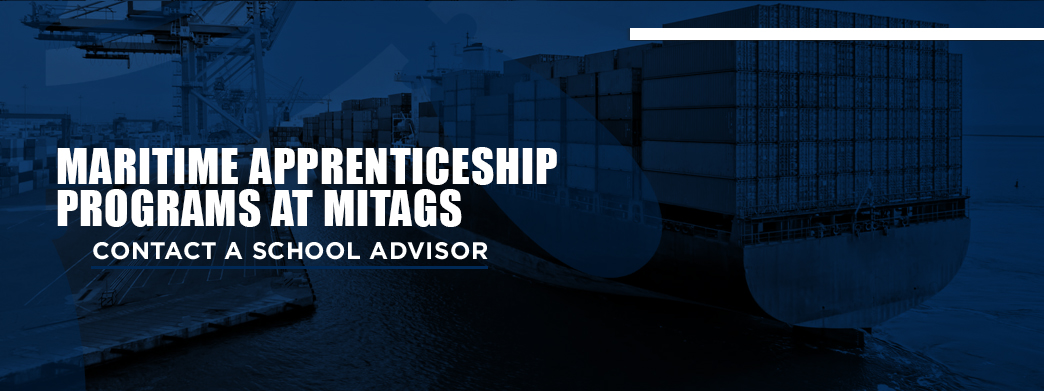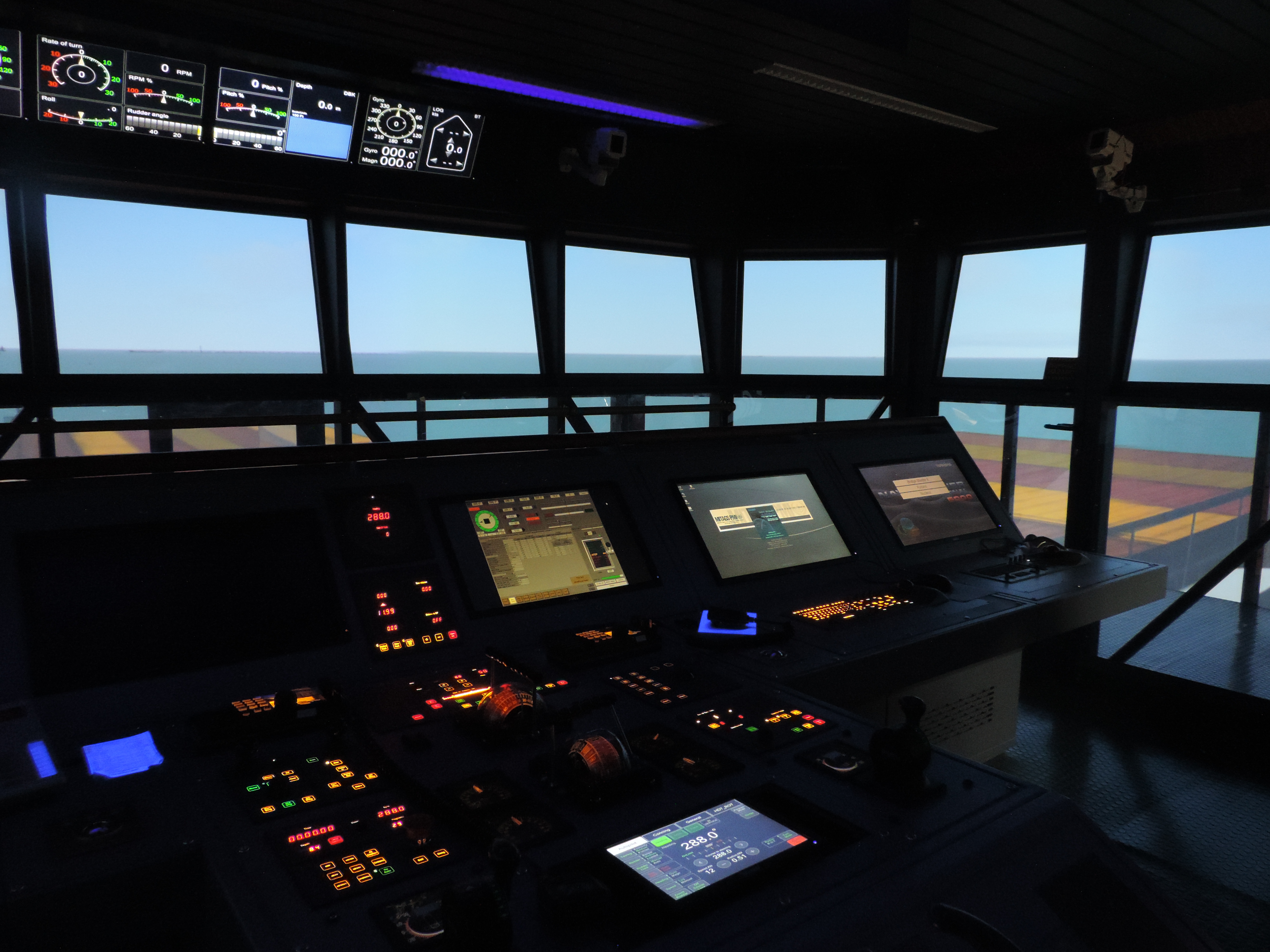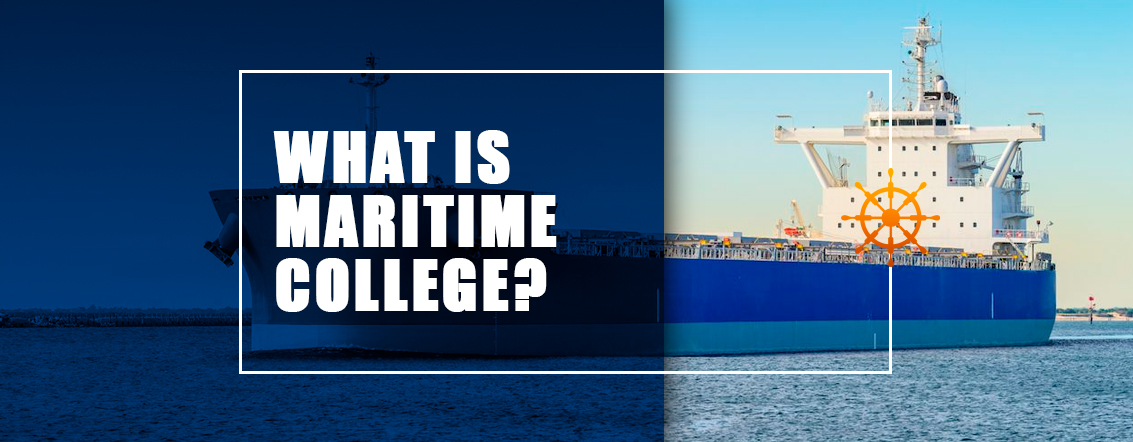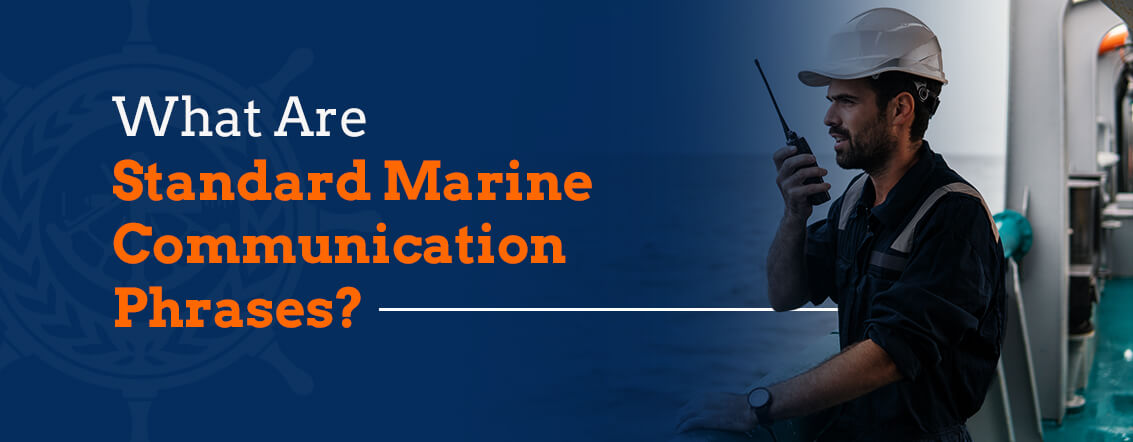- A Maritime Industry Career Overview
- How to Get a Job Aboard a Ship
- Different Career Options
- Types of Vessels in the Maritime Industry
- Benefits and Disadvantages of Working at Sea
- Certification as a Deck Officer
- Deciding Which Maritime Career to Pursue
- Maritime Apprenticeship Programs at MITAGS
The average annual wage for captains and mates of water vessels in 2022 was $95,210, according to the United States Bureau of Labor Statistics.
If you’re interested in the world of ships and boats and are excited about avoiding a traditional nine-to-five workplace, then a career in the maritime industry might be for you. It’s an exciting and financially rewarding profession — you get to travel the world and get paid to be on the water.
Throughout this article, we’ll discuss maritime career paths, pros and cons of working at sea and give insight into marine apprenticeship training programs that can help you fast-track your introduction to the industry and provide you with the credentials needed to approach job boards confidently.
A Maritime Industry Career Overview
A maritime career isn’t for everyone, though — you must be driven, adaptable and willing to work an alternative schedule. But if a job that’s consistently exciting and non-traditional sounds like you, you may opt to join the thousands of professional mariners who love their careers at sea.
People choose careers in the maritime industry for various reasons, and there are many different career pathways you can take within the marine sector. Jobs range from old-fashioned manual labor to highly skilled and technical positions requiring years of training and mastery.
Many maritime job vacancies offer entry-level positions with lower experience levels required. However, to work on specific kinds of ships — such as tugboats, oil tankers, research vessels and container ships — and to hold certain positions, you will need advanced training. Therefore, gaining further insight into which maritime education route to take before embarking on your career journey is a good idea.
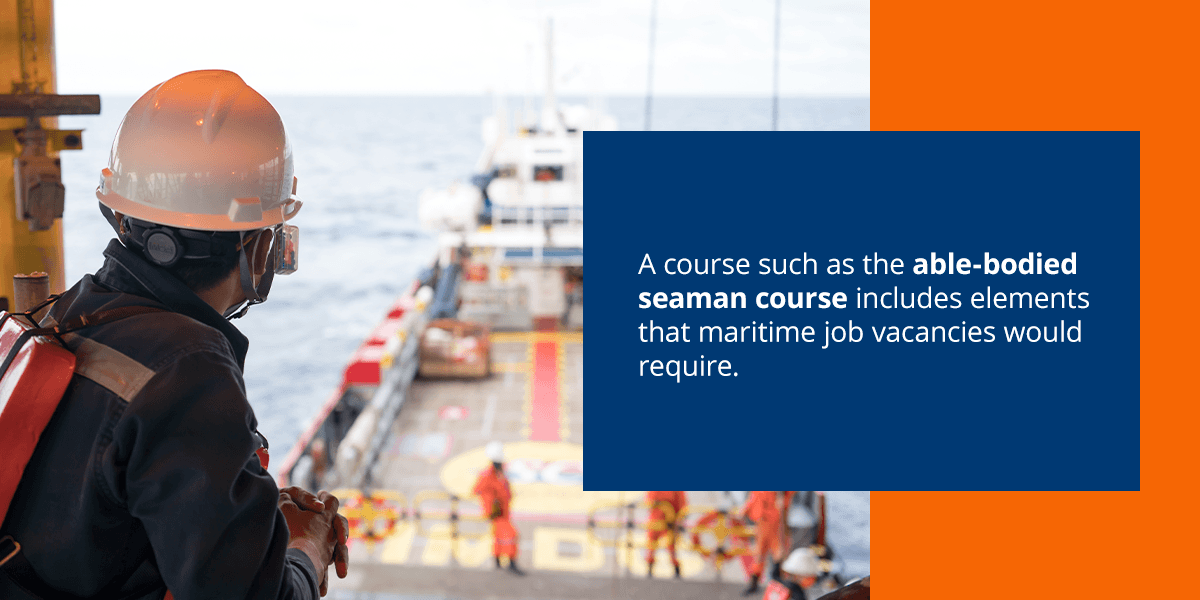
Additionally, to become a mariner, you must be physically fit for the job, and committed to keeping your workplace safe. To get started, you need to:
- Pass a background check
- Pass a medical and physical exam
- Be authorized to work in the United States
- Provide proof of identity
- Consent to and pass a drug test regularly
- Obtain a Transportation Worker Identification Card (TWIC)
- Complete required training programs such as Basic Safety Training (BST)
- Obtain relevant certifications and licenses for your preferred job vacancies
How to Get an Entry-Level Job in the Maritime Industry
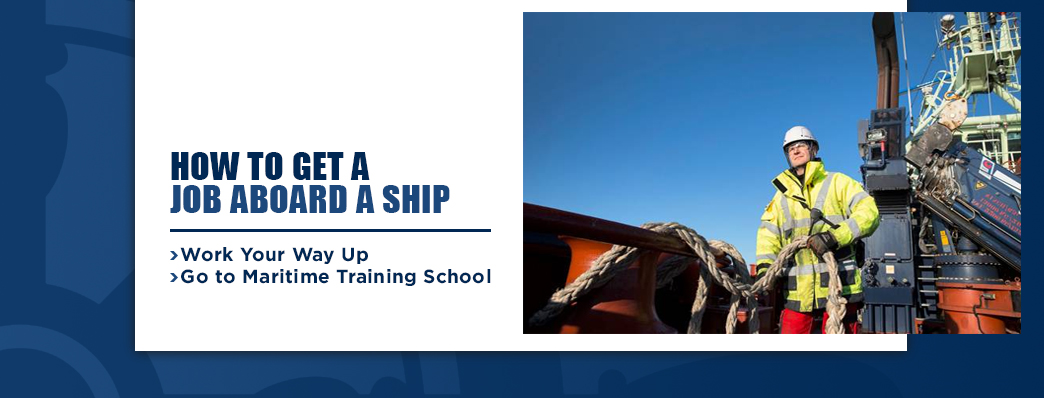
Say you’ve done your research and decided a career at sea might be for you. How should you get started? This is how people usually break into the maritime industry:
1. Get an Entry-Level Maritime Job
If you’re unsure what your end goal is in your maritime career or don’t want to invest time before testing the waters, you may jump into an entry-level position and gradually work your way up from there.
Some people start their maritime careers by checking job boards for lower experience levels and then acquire the certifications and undergo training programs as they advance in their careers.
Finding a maritime job now — whether you wish to work on a tugboat, passenger ship or cargo vessel — is much simpler than in the past. The internet and the increased number of professional job boards means a much smoother process and more ways to search for jobs.
One of the best ways to search for openings is to visit a company or organization’s official website and look through available job vacancies. Be sure to set a job alert if you are still seeking vacancies. A job alert will sent a notification to your email address once the job board is updated. Once you find an open position, view the requirements.
Often, there will be a list of certificates and experience required and other documents you’ll need to upload via a form or the company’s official email address. Once you submit, take note of the organization’s expected response time.
2. Go to Maritime Training School
If you’re looking for a career working on large vessels — not just a summer job — then there’s no better way to break in than attending a maritime training school such as MITAGS. Mariners know and respect the importance of this training — it will give you a significant edge over other applicants who don’t have it.
There are programs for entry-level students that train you for your shipboard duties, help you earn your certificates and even help find employment opportunities. There are different apprenticeship tracks to suit your goals, which we’ll discuss later.
Questions? Contact a school advisor here.
How to Work on a Vessel — Different Maritime Career Options
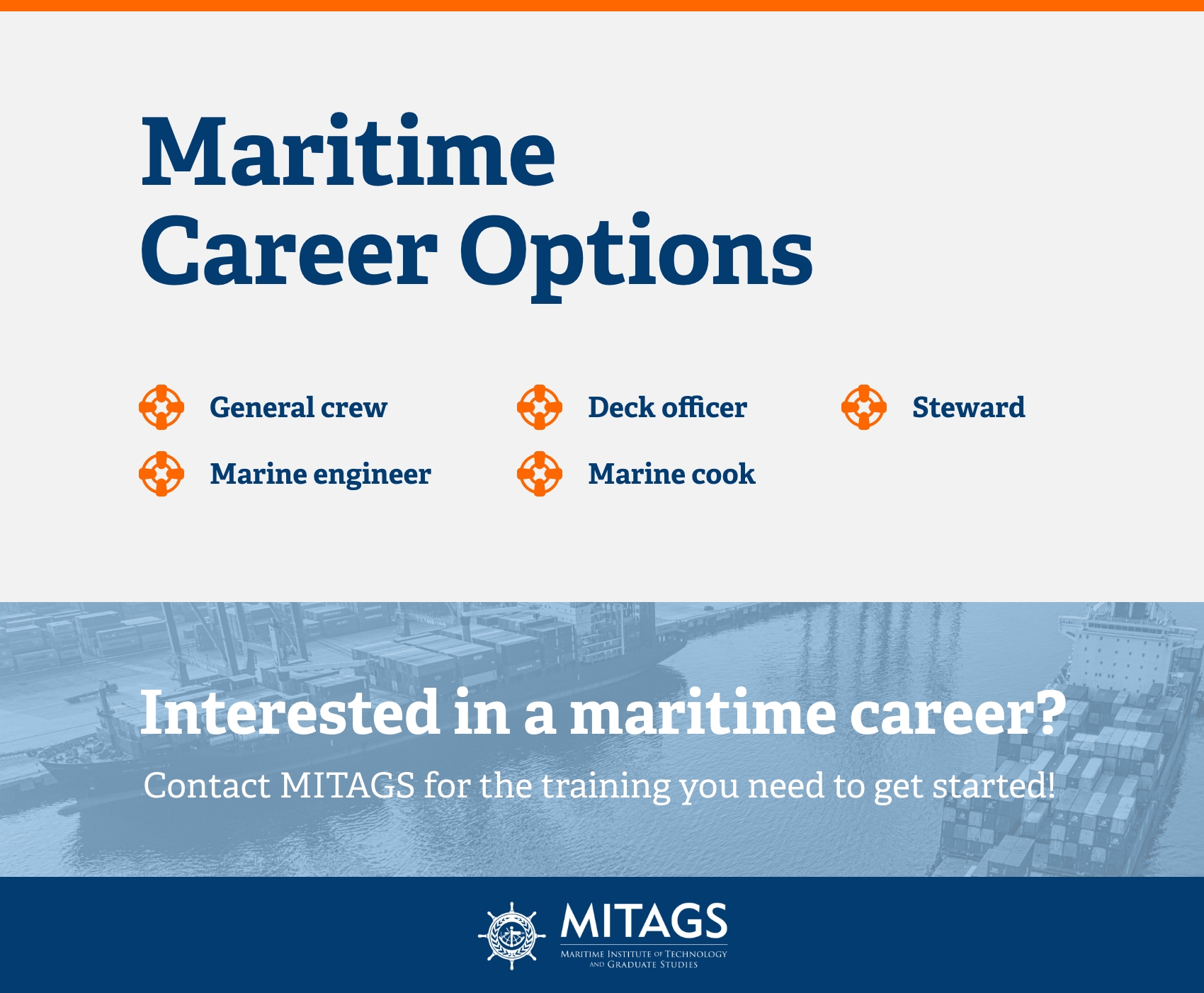
There are several different career pathways to take within the maritime industry. And while a ship’s mariners are literally all in the same boat, their day-to-day tasks may differ, ranging from the chief engineer in the engine room to the chief officer on deck. The following discusses the most common positions you could pursue when looking at job vacancies.
1. General Crew
As general crew, you’re responsible for the hands-on work that gets done on deck. That means you’ll be helping with tasks like cargo operations, berthing and unberthing, equipment maintenance, vessel maintenance, handling deck machinery and possibly assisting with navigation.
2. Marine Engineer
As a marine engineer, you’re responsible for the more technical and complicated mechanical systems aboard a ship. Many engineers are highly specialized and only work in one area of the vessel, like the engine room or with electronic systems.
3. Deck Officer
Deck officers are responsible for the safe navigation of the vessel, which involves monitoring the vessel’s position, developing passage plans, and avoiding collisions with other vessels.
4. Marine Cook
Everybody loves a good cook. If your passion is the culinary arts and a life at sea sounds exciting to you, you may consider this option. Marine chefs run the ship’s galley and are in charge of ordering and budgeting for supplies.
5. Steward
Stewards are more common on long-haul vessels and in the private yachting world — they are primarily responsible for helping with the chores or daily living and keeping everything in the living quarters clean and fresh. They help clean and maintain crew accommodations and will also assist the galley staff from time to time.
6. Land-Based Maritime Careers
What if you like ships and their operations but don’t want to head for the open seas? Several land-based careers within the maritime industry might be suitable for you. These include shipbuilding and repair, port operations, accounting and budgeting, parts ordering and more:
- Shipbuilding and repair: If you’re interested in the process of building massive ships and what goes into repairing them, then this exciting facet of the marine industry might be for you.
- Port operations: There are several career opportunities solely within ports themselves — they can be as dynamic and exciting as working onboard. Ships and sea vessels from all over the world come into port every day, and it takes an enormous number of people to handle the operations. You may work in passenger and cargo unloading, distribution or security. Specific jobs include longshoreman, truck and ship loader, delivery driver, cargo and freight agent, fleet engineer, shipping broker and many more.
7. Crossover Careers
If the maritime industry interests you but you don’t want to spend your working days at a port or at sea, there are jobs that interact with the shipping industry without directly being a part of it. Career fields like accounting, public relations, marine law, marine biology and more can play valuable roles for shipping companies, yet they don’t involve any of the actual shipping work.
Questions? Contact a school advisor here.
Types of Vessels in the Maritime Industry
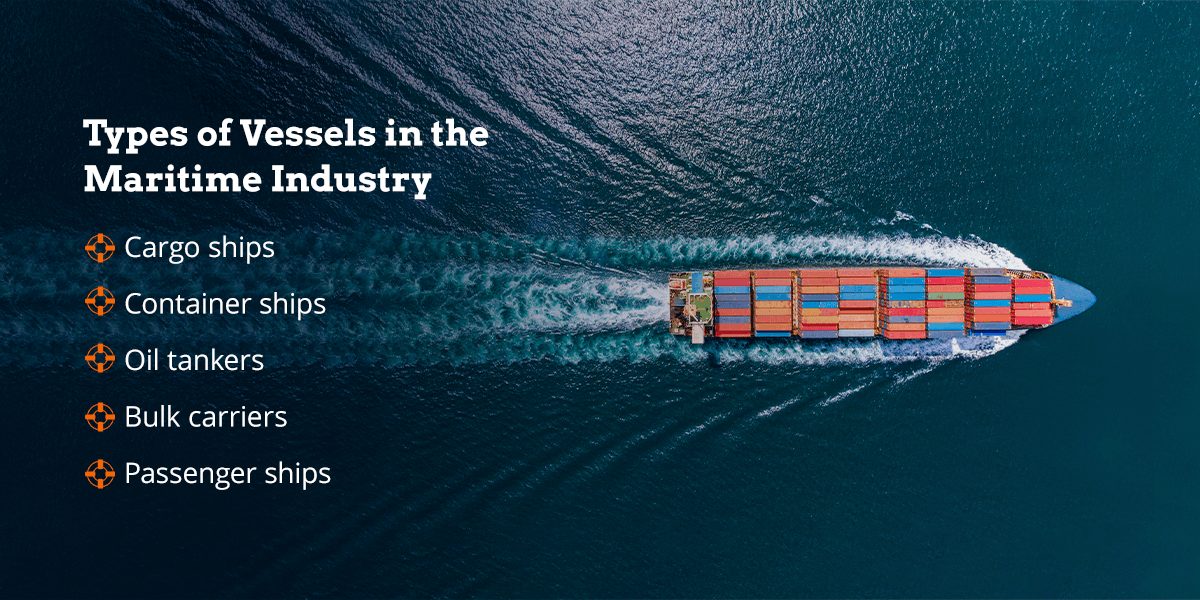
In addition to possible roles, you also want to consider different vessels and which ones appeal to you and your existing skill set. These are some of the potential sea vessels you might wish to work aboard when starting your career:
- Container ships: A container vessel is a cargo ship that carries its load in large metal containers.
- Oil tankers: Tankers generally carry large quantities of liquids and gases. For these ships, safety is a significant factor.
- Bulk carriers: The purpose of bulk carriers is to transport unpackaged bulk cargo such as dry cement, grain and coal.
- Passenger ships: These ships carry passengers and minimal cargo. There are many essential jobs, including marine cooks, stewards and general crew.
Benefits and Disadvantages of Working at Sea
Now that you know the different types of work in the maritime industry, let’s get into the ups and downs of working at sea:
- Good wages: Simply because of the requirement for you to be away from your home on land, maritime positions typically pay better than similar work ashore.
- Savings: When working aboard a ship, all your living expenses are essentially covered. Aside from the potential rent or mortgage of where you live when you’re not at sea, the money you can save on other expenses is a huge perk.
- An alternative to college: People can graduate from four-year colleges with heaps of student debt without knowing what they want to do next. Maritime training courses prepare you for a job and are more affordable than many college tuitions.
- Responsibility: This could be good or bad, depending on your personality, but if you become a chief officer or second officer, you’ll be responsible for ship operations that aren’t to be taken lightly — tasks like supervision of deck operations, navigation and watchkeeping. However, it can be very satisfying if you like having your opinion respected and your actions make a difference.
- Travel: Again, this one depends on your personality. Living aboard a ship means traveling the globe while you work. Some people don’t like being away from home for long periods, but to others, the freedom and escape are just what they’re looking for. Instead of working at the same desk all year, you’ll have the ocean for an office.
- Career security: The maritime industry will always need crew and captains. The marine industry has existed for thousands of years and isn’t going anywhere soon. Especially once you get experience and have maritime training, you won’t have any problem getting and keeping positions. The marine sector is growing faster than the U.S. economy and is projected to expand increasingly in the coming years.
- Long vacations: Many careers at sea require you to be on board for long periods, sometimes months at a time. But those months are followed by long periods off — sometimes an equal amount. This schedule is perfect for those who like to complete all their work at once and reap the reward of uninterrupted vacation time.
- International recognition: An officer’s qualifications are based on international shipping standards and can be transferable to other maritime jobs worldwide. The United States is an incredibly respected entity for maritime certifications.
Certification as a Deck Officer
If you’ve made it this far in the article, we will assume you’re interested in what the maritime industry has to offer. So, we’ll dive deeper into what it’s like to work toward being a senior member of the deck department and what the different types mean for your career.
Depending on what type of marine work you want to get into and how long you want to be at sea may help you determine what kind of licensing you’ll strive to acquire. Here are the different types of deck officer licenses and the expected work for each:
1. Deck Officer Limited
If you’d like to work in the marine industry but would instead not go for long-haul trips that take several months at a time, you may opt to work aboard smaller vessels — “smaller” meaning vessels not as large as cargo ships. These vessels are commonly referred to as “workboats.” They include ferry boats, small passenger ships, dredging vessels, research boats and underwater salvage vessels, typically between 500 and 1,600 gross register tonnage (GRT).
For these types of vessels, you’ll need to achieve a certified limited license and work under a senior deck department officer. The “limited” portion of the title refers to the fact that you are limited to smaller vessels and a shorter range of travel.
Does this mean getting a limited license is less valuable than an unlimited license?
No — if you want to work on smaller, non-shipping vessels, a limited license may be all you need to reach your career goals. If your certification meets the requirements for a position, marine companies are most interested in the experience you’ve accumulated working similar jobs. Therefore, you could be in higher demand than someone with an unlimited certification — if they only have experience working aboard large shipping vessels.
Working aboard different, smaller vessels makes you a well-rounded mariner and will make you more attractive to workboat employers.
Trips an officer with a limited license would undergo are typically inland and near coastal waters, ranging anywhere from just a day onboard to close to a month for port-to-port journeys. Your crew size is often smaller — usually between four to eight members. Those aboard usually share the duties of cleaning and cooking.
One area where workboat crew tend to gain valuable experience is in rigging. Smaller, more maneuverable vessels often need to rig cargo to tow or transit and learning how to do this correctly is invaluable knowledge.
2. Deck Officer Unlimited
If you like the idea of working aboard a large container ship, then pursuing your unlimited license may be your best goal.
You’ll be responsible for overseeing the safe transit of valuable cargo while protecting the lives of your crew through different oceans and countries across the globe. You’ll share these duties and act as an apprentice to the senior officers aboard your vessel.
Here’s what serving under the senior officers entails:
- You’ll be responsible for inspecting and maintaining safety and life-saving equipment, including lifeboats and fire-fighting gear.
- You’ll oversee the deck crew and ensure the deck equipment is used correctly and maintained.
- You’ll stand navigational watch to ensure the ship’s course is true and safe.
- You’ll work alongside the ship’s helmsman to plot courses, practice collision avoidance, use navigational equipment and more.
- When you come into port, you’ll oversee the safe unloading and loading of cargo and control ship stability and mooring lines. It’s your job to communicate between the captain and crew.
Like any high-level marine certification, getting your unlimited license is a prestigious achievement. Your experience on long-haul trips and with crew, equipment, cargo management, navigation and watchkeeping make you a competent and sought-after employee.
According to the compensation data site Salary.com, deck officers’ average salary in 2023 was $101,263. However, there is much room for upward mobility and significant increases in pay as you advance. If you wish to continue climbing the ladder, you can use your sea time gained as a second or third officer to move up the ranks and work as a chief officer or captain.
Questions? Contact a School Advisor
Deciding Which Maritime Career to Pursue
Figuring out what type of entry-level or more advanced maritime career suits you can be challenging on your own.
Thankfully, you can speak to a knowledgeable school advisor at the Maritime Institute of Technology and Graduate Studies (MITAGS) to help you understand the many roles in varying departments aboard the different types of vessels.
Simply complete our contact form, including your name and email address, and an advisor will contact you shortly.
Maritime Apprenticeship Programs at MITAGS
At MITAGS, we think the best way to learn is by doing. Our apprenticeship model is designed to make high-quality mariners with real experience who are ready to begin a career at sea.
Our course consists of a 28-month program divided into 26 weeks of classroom training and 360 calendar days of training at sea. The program is all-inclusive and provides the training and support you need to obtain your limited or unlimited deck rating. You’ll be confident and prepared to take on your responsibilities when you step foot aboard a merchant vessel.
Our shore-based training is supported with real-world instructive training as well as accurate and advanced simulation training that puts your learning to use in practical application. This method means you can immediately apply new knowledge to actual functions on the job. We work with you to gradually and logically build your skills from the ground up.
To learn more about our classes or a career at sea, please don’t hesitate to contact a school advisor today to start turning your maritime career goals into actionable steps.

